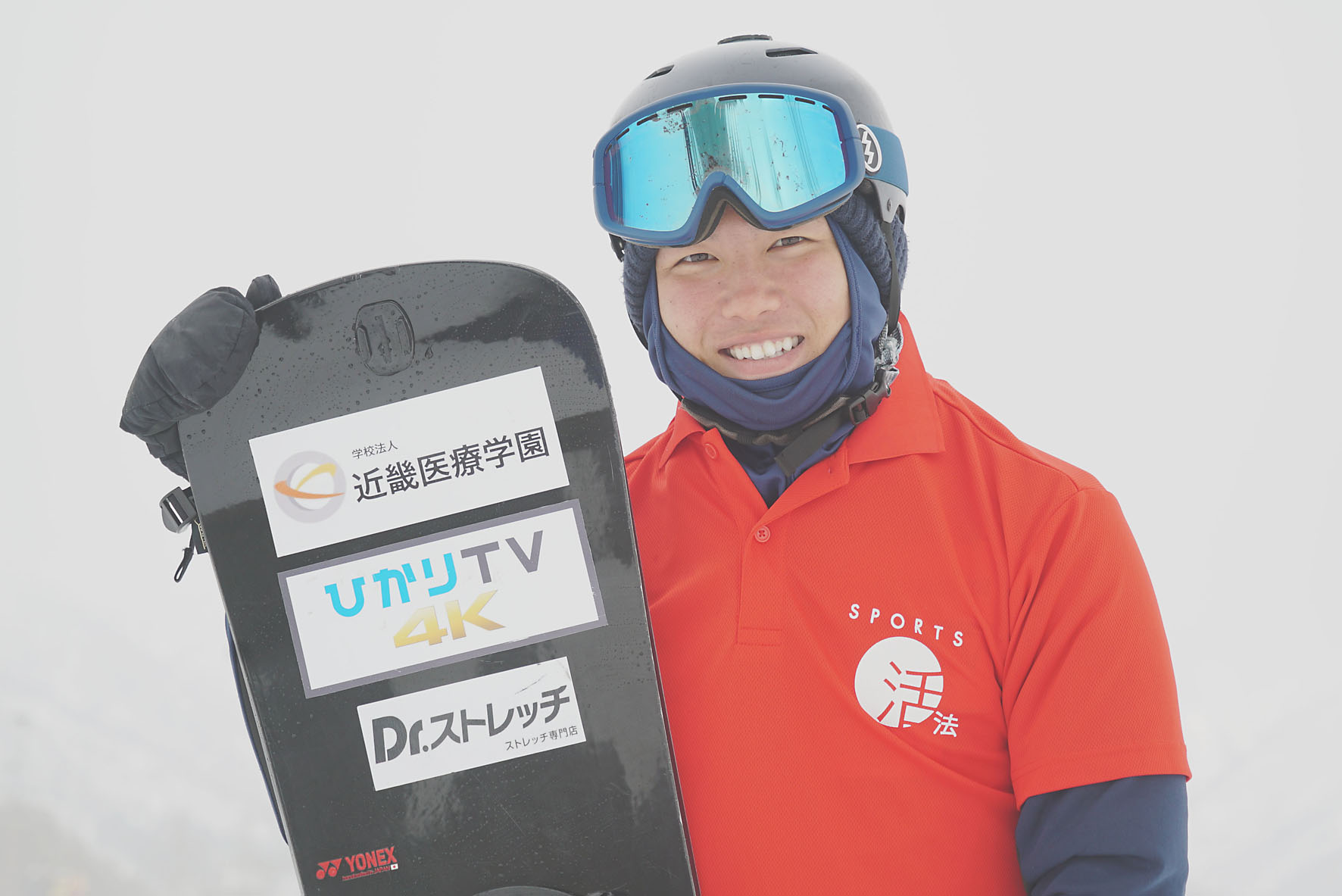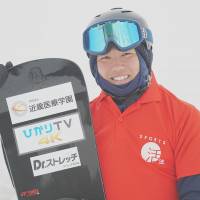Gurimu Narita did not bask too long in the glory of winning a pair of medals at the 2018 Winter Paralympics.
What he achieved in Pyeongchang, South Korea, in March — gold in the men's snowboarding banked slalom and bronze in the snowboard cross, both in the SBLL-2 class — was something he was definitely aiming for. But once he had done it, he quickly and without hesitation decided to move on to a new goal in a different sport.
Right now, the 24-year-old, who announced his retirement from snowboarding after Pyeongchang, is looking toward the 2020 Tokyo Olympics and Paralympics, hoping to become the first Asian athlete to compete at both events, though he has yet to decide on a sport.
"If I am able to do that, that will be great," Narita told The Japan Times in an interview last month in Tokyo. "Nobody from Asia has done it, and that tells you how difficult it is."
Narita has recently taken up golf and goes to the course on a daily basis. He's not using golf to relieve the strain of his snowboarding competition, nor is it a sport he intends to try to compete in during the 2020 Summer Games.
Narita is using the sport to help "upgrade" his mentality, as golf requires a high level of concentration and mental strength.
There is no time for Narita to sit back and relax even with the Paralympics over. He feels the need to keep pushing and clear the hurdles he's set for himself.
Narita has his own, unorthodox methods to keep himself motivated. He writes hundreds of pledges to meet certain goals each a month, and if he does not achieve them he shaves off his hair.
For instance, he carded a 130 when he began playing golf after the Paralympics. He made a pledge to get his score down to 95 within the space of a month, a goal he successfully met.
"It's not like I'm having some time off because the Paralympics are over," said Narita, who also won the 2017-18 season title in the men's Para-snowboard cross. "I want to have pressure all the time. I don't want to waste a minute or even a second."
So you can see how unconventional an athlete Narita is, but he once was an Olympic-caliber prodigy. He has an older brother, Domu Narita, and an older sister, Melo Imai, who both competed at the 2006 Turin Olympics in snowboarding halfpipe.
Narita was on course to follow in their footsteps. He competed at the 2013 world championships in freestyle skiing halfpipe. He was even a national team candidate for the 2012 London Olympics in trampoline, which he worked on since he was little and used to develop his athleticism.
But Narita suffered a disastrous injury to his left leg during practice at the trampoline facility installed on top of his home in Osaka. The accident wound up paralyzing the lower part of his leg.
From that time on, Narita developed a different outlook. Not only has he become a Para-sports athlete, but his motivation for competing has also changed.
Before the injury, Narita was pretty much competing for himself. Now he does it for other people. He works hard and competes to give inspiration to those watching him.
"I mean, I could say I'm still doing things for myself," Narita said. "That is to say, giving inspiration to people by me achieving my dreams."
Winning a gold medal at the Olympics and Paralympics would obviously be an outstanding achievement in its own right. But Narita insists he wants to make a bigger impact than just coming up with great results.
"I'm not just looking for results, but to be influential," he said. "That's where I'm a little different."
Narita has also been busy away from competition, posting videos on his own Youtube channel where he tries various different, entertaining things.
On one, he went down a ski slope using an app on his smartphone to show the audience how fast a snowboarder travels. Even during the Pyeongchang Olympics, he did not stop. He broadcast from inside the Olympic Village.
"Ultimately, I would like to inspire people to do something," said Narita, who has competed in para-triathlon, high jump and long jump in Para-athletics (he finished runner-up in both track and field events at the national championships). "So if they don't know my name, they don't feel anything. If you don't know who the person is, you don't feel anything. So that's why I'm doing things, so that they recognize my name and face, to make them wonder what I'm doing."
So in what sport is he thinking about competing in to inspire people at the Tokyo Olympics and Paralympics?
Right now, it's up in the air. He is currently brainstorming ideas, thinking of what would give him a better chance of making it to both games.
"I'm curious to know what they will be," he said with a smile.


















With your current subscription plan you can comment on stories. However, before writing your first comment, please create a display name in the Profile section of your subscriber account page.